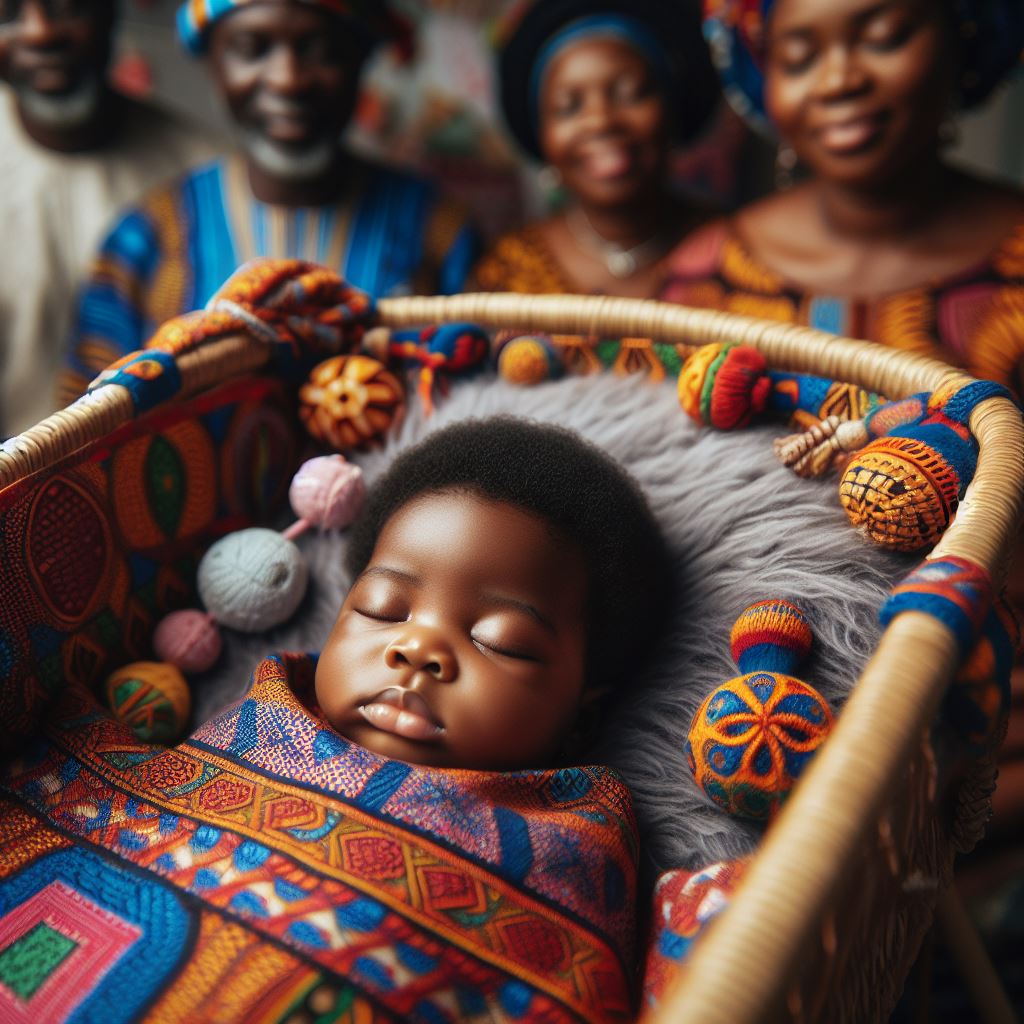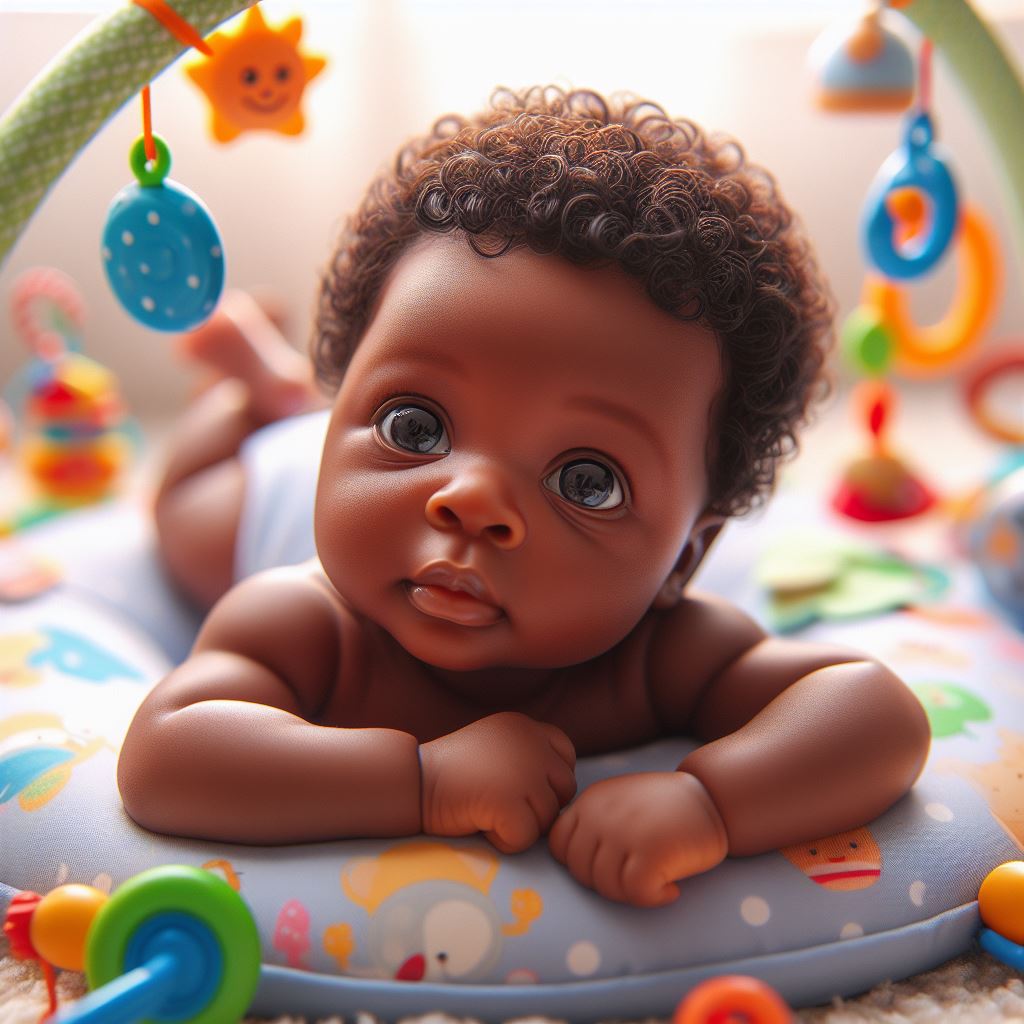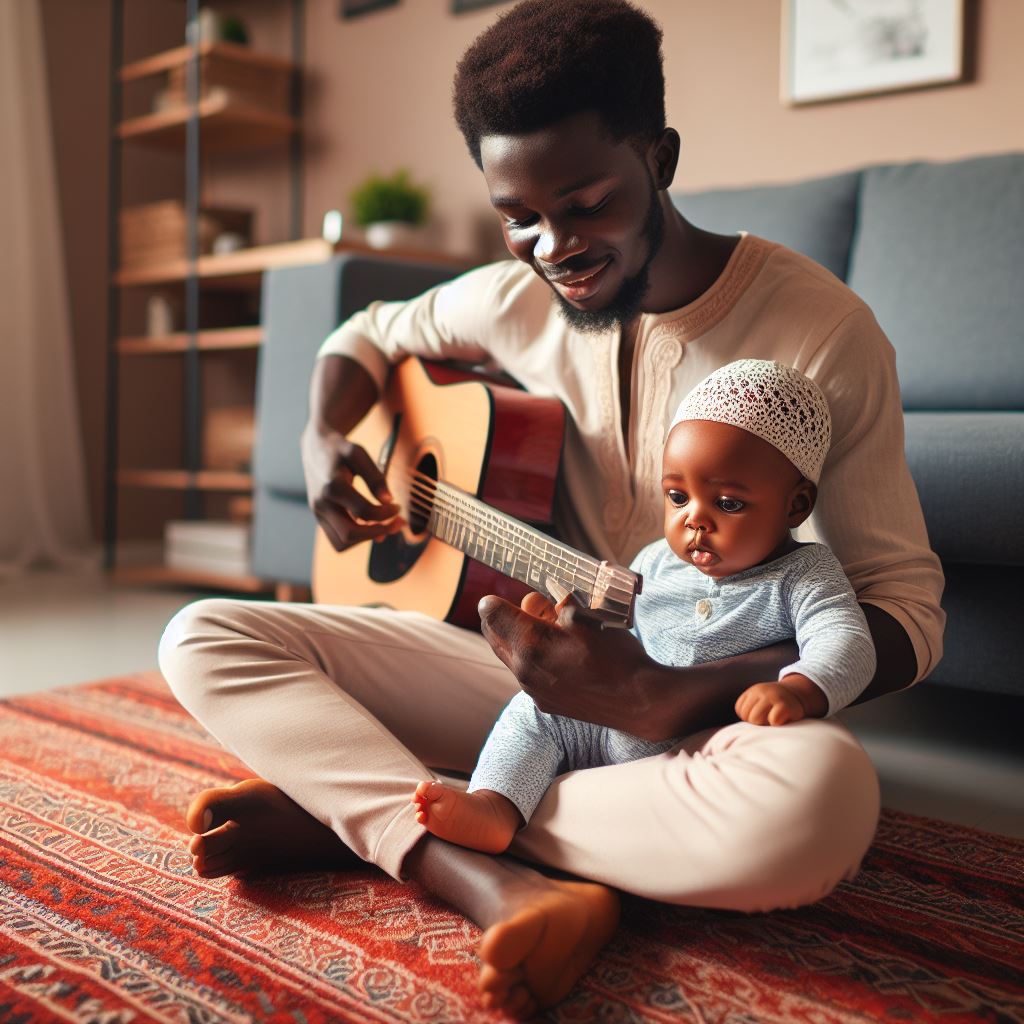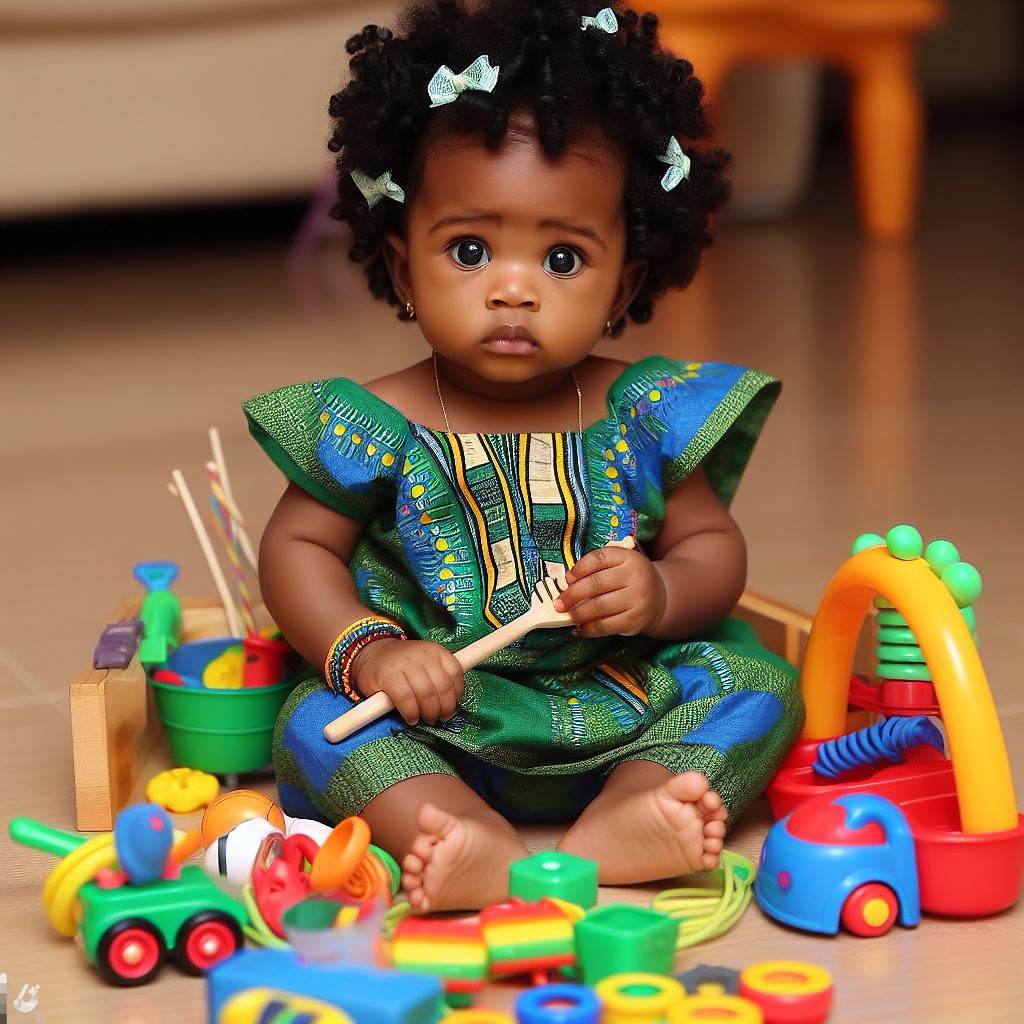Introduction
The journey of a child’s language development is an incredible adventure that shapes their cognitive abilities, emotional intelligence, and social skills.
As parents and caregivers, fostering effective communication in our little ones is a responsibility that requires attention and intentionality.
In the vibrant tapestry of global cultures, Nigerian parents bring a unique flavor to this journey.
In this post, we’ll delve into the importance of language development in babies and explore specific tips tailored for the Nigerian context.
The Importance of Language Development
Language is the cornerstone of human connection, enabling expression, understanding, and emotional bonding.
For babies, language development is not just about learning words; it lays the foundation for cognitive growth and socio-emotional well-being.
The first few years are crucial as the brain undergoes rapid development, making it the opportune time to nurture linguistic skills.
Focus of the Blog Post: Nigerian Baby Language Development Tips
In the vast cultural landscape of Nigeria, language is a rich tapestry reflecting diversity and unity.
Our focus is on empowering Nigerian parents with practical tips to enhance their babies’ language development.
From the enchanting rhythms of lullabies to the warmth of storytelling, Nigerian traditions offer a myriad of opportunities to engage and stimulate a child’s linguistic abilities.
Tips for Nigerian Baby Language Development
- Multilingual Exposure: Nigeria is a country of diverse languages. Exposing your baby to multiple languages enhances cognitive flexibility. Speak in your native tongue, and if applicable, introduce a second language gradually.
- Cultural Storytelling: Nigerian folklore is a treasure trove of captivating stories. Share these tales with your little one to instill cultural pride and stimulate their imagination.
- Musical Moments: Infuse your baby’s environment with the soulful melodies of Nigerian music. Sing traditional songs and create a musical bond that transcends language.
- Daily Conversations: Engage in daily conversations with your baby. Whether it’s discussing routine activities or sharing your experiences, this builds their vocabulary and communication skills.
- Celebrating Festivals: Embrace the richness of Nigerian festivals. Explain the significance of customs, rituals, and the accompanying language to broaden your baby’s understanding.
In fact, the journey of language development in Nigerian babies is a celebration of culture, heritage, and the boundless potential of young minds.
By weaving these tips into the fabric of daily life, we can ensure that our little ones grow into eloquent communicators, bridging generations with the beauty of language.
Start early
In the fascinating journey of child development, language acquisition stands out as a crucial milestone.
For Nigerian parents, instilling a strong foundation in language skills begins right from the first cry.
Here are some invaluable tips to ensure your little one’s linguistic journey starts on the right note.
Parenting Made Just for You
Get personalized Parenting Solutions tailored to your child’s needs. Transform your parenting journey with expert guidance in 1-3 days.
Get StartedThe early bird catches the worm, they say, and the same holds true for language development.
Begin fostering communication skills from day one.
While it might seem like your newborn is too young to understand, they are absorbing the nuances of language from the environment around them.
Tips for engaging with newborns and infants
Talking to the baby
Use simple, clear, and repetitive language when communicating with your infant.
Narrate your day, describe the surroundings, and share your emotions.
This not only establishes a strong bond but also introduces the baby to the rhythm and cadence of language.
Reading aloud
Introduce your baby to the world of books early on.
Opt for board books with vibrant pictures and simple sentences.
Reading aloud not only exposes the child to different words but also introduces them to the musicality of language.
Choose books with rhymes and repetition for an added linguistic boost.
Singing and nursery rhymes
Music has a magical way of captivating young minds. Incorporate singing and nursery rhymes into your daily routine.
Whether it’s during bath time or while rocking your baby to sleep, these melodic moments contribute to language development.
Pay attention to Nigerian songs and rhymes to infuse a cultural connection into your baby’s linguistic repertoire.
In short, the journey of language development begins from the first moments of a child’s life.
Unveil the Perfect Name that Tells Your Family's Story
Let us help you find a name that embodies your family's values, traditions, and dreams. Our personalized consultation weaves cultural insights to create a name that's uniquely yours.
Get StartedEmbrace the power of words, books, and music to cultivate a rich linguistic environment for your Nigerian baby.
As you embark on this exciting chapter, remember that the small, consistent efforts today lay the foundation for a lifetime of effective communication.
Read: Top Baby Development Myths Debunked for Nigerians
Building vocabulary
In the vibrant tapestry of Nigerian culture, language plays a pivotal role in shaping a child’s identity.
The early years are crucial for language development, laying the foundation for effective communication.
Here, we delve into practical tips for enhancing a Nigerian baby’s vocabulary, fostering a rich linguistic environment.
Labeling Objects and Describing Functions
During daily routines, take the opportunity to label objects and describe their functions.
Whether it’s mealtime, bath time, or playtime, engage your baby by identifying items and explaining their purpose.
For example, during a meal, point to the spoon and say, “This is a spoon. We use it to eat our delicious food.”
Pointing Out and Naming Things During Walks or Outings
Exploration is a key aspect of vocabulary development. When taking walks or going on outings, actively point out and name different things.
Whether it’s a tree, a bird, or a passing car, verbalize these observations in Nigerian languages.
This exposure to real-world objects enhances the baby’s contextual understanding of language.
Encouraging Family Members to Speak Nigerian Languages
Create a supportive language environment by encouraging family members to converse with the baby in Nigerian languages.
Grandparents, aunts, uncles – everyone can contribute to the linguistic tapestry.
The diverse linguistic input enriches the baby’s language exposure, fostering a deep connection to cultural roots.
Introducing Age-Appropriate Toys, Books, and Games
Select toys, books, and games that expose the baby to new words.
Choose age-appropriate materials that feature Nigerian languages or themes.
Interactive toys with voice prompts and books that narrate simple stories in local languages can be powerful tools for vocabulary expansion.
In the symphony of language development, these strategies harmonize to create a nurturing environment for a Nigerian baby’s linguistic growth.
By weaving the beauty of Nigerian languages into daily interactions, parents can cultivate not only a robust vocabulary but also a strong cultural identity for their little ones.
Read: Understanding Baby Speech Development Stages
Encouraging communication
As parents, fostering effective communication in your Nigerian baby is crucial for their overall development.
Here are three key strategies to enhance your baby’s language skills:
Responding to Gestures and Sounds
Babies communicate through gestures and sounds long before they utter their first words.
Pay close attention to their cues—whether it’s a joyful giggle or a subtle hand movement.
Respond promptly, letting them know their attempts at communication are valued.
Maintaining Eye Contact and Facial Expressions
Eye contact is a powerful tool in building a connection with your baby.
During interactions, maintain eye contact and use facial expressions to convey emotions.
This not only strengthens your bond but also helps your baby understand the emotional nuances of communication.
Encouraging Imitation
Babies learn by imitating the sounds and gestures they observe. Encourage your little one to mimic your actions and repeat simple sounds.
This not only aids language development but also instills a sense of confidence as they realize their attempts are understood and acknowledged.
Playing Turn-Taking Games
Peek-a-Boo
This classic game not only brings joy to your baby but also enhances their understanding of turn-taking.
As you cover your face and then reveal it with a cheerful “peek-a-boo,” your baby learns the rhythm of conversation and begins to grasp the concept of taking turns in communication.
Pat-a-Cake
Engage your baby in the rhythmic clapping and chanting of “pat-a-cake.” This not only stimulates their auditory senses but also introduces the concept of back-and-forth communication.
The repetitive nature of the game helps lay the foundation for language development.
Creating a Language-Rich Environment:
Surround your baby with a diverse range of stimuli, such as colorful books, soft toys, and musical instruments.
Narrate your daily activities, describe pictures in books, and sing lullabies.
A language-rich environment fosters a curiosity for words and sounds, setting the stage for linguistic development.
Incorporating these strategies into your daily interactions will not only enhance your baby’s language skills but also strengthen the bond between you and your little one.
Remember, every coo, giggle, and gesture is a step toward meaningful communication.
Read: Nutrition Tips for Healthy Baby Growth in Nigeria
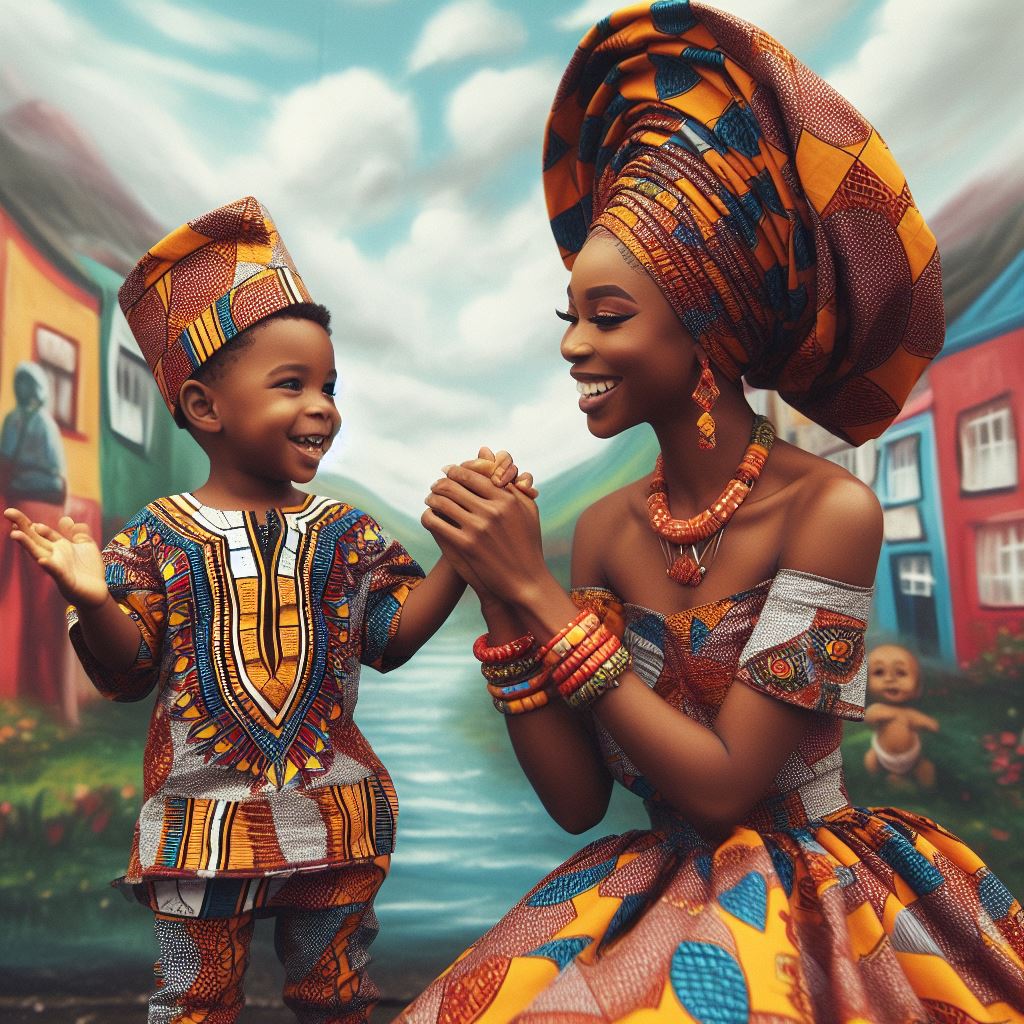
Multi-sensory learning
In the fascinating journey of Nigerian baby language development, parents play a pivotal role in shaping their little ones’ linguistic abilities.
One powerful strategy that transcends traditional methods is embracing multi-sensory learning.
This approach not only enhances language acquisition but also stimulates overall cognitive development.
Benefits of Multi-Sensory Learning
- Holistic Engagement: Engaging multiple senses simultaneously helps babies process information more effectively. It creates a richer learning experience, as different sensory inputs reinforce one another.
- Enhanced Memory: The combination of sight, sound, touch, taste, and smell forms strong neural connections, promoting better retention of language concepts. This can significantly accelerate vocabulary acquisition.
- Improved Motor Skills: Incorporating movement and gestures into language activities not only aids in language development but also fosters the development of fine and gross motor skills.
Tips for Creating Multi-Sensory Experiences
- Sensory Toys and Materials: Introduce toys with varied textures, colors, and sounds. This provides a tactile experience that complements verbal interactions, making language more tangible.
- Movement and Gestures: Encourage activities that involve movement, such as dancing or clapping, while narrating stories or singing songs. This helps reinforce words and concepts through physical engagement.
- Explore the Senses: Engage your baby in activities that involve taste, smell, and touch. For instance, use scented objects during playtime or introduce different textured foods during mealtime to associate sensory experiences with language.
- Facial Expressions and Gestures: Babies are keen observers. Use expressive facial gestures and hand movements to complement spoken words. This not only captures their attention but also aids in the understanding of emotions and context.
In the vibrant tapestry of Nigerian baby language development, the incorporation of multi-sensory learning adds depth and richness.
By embracing this holistic approach, parents can create an environment where language becomes a multisensory symphony, laying the foundation for effective communication and cognitive growth.
Read: Cultural Aspects of Breastfeeding in Nigeria
Cultural immersion
Cultural immersion is a vital aspect to consider for Nigerian babies’ language development.
By recognizing the importance of cultural context, parents can create a rich environment for their little ones to thrive linguistically.
Here, we provide some suggestions for immersing your baby in Nigerian culture, fostering a stronger connection to their heritage.
Exposing them to Nigerian music and songs
Music is a powerful tool for language acquisition and cultural understanding. Introduce your baby to Nigerian music genres like Afrobeat, highlife, and juju.
Play traditional Nigerian children songs and engage them in singing and dancing along.
This exposure will not only enhance their language skills but also instill a sense of pride in their cultural heritage.
Nigerian children’s books and storytelling
Reading is a fundamental activity that promotes language development.
Find Nigerian children’s books with vibrant illustrations that depict local stories, folklore, and values.
The colorful imagery will captivate your baby’s attention while fostering a love for reading and promoting vital language skills.
Additionally, don’t hesitate to integrate storytelling into your daily routine.
Share tales from Nigerian folklore and encourage your baby to participate by asking questions or reenacting parts of the narrative.
This engagement will enable them to grasp language nuances and broaden their vocabulary.
Celebrating Nigerian holidays and traditions as a family:
Participating in Nigerian holidays and cultural traditions as a family will immerse your baby in authentic cultural experiences.
Observe festivals like Eid-el-Fitr, Christmas, or Independence Day, and explain the significance behind each celebration.
Engage them in age-appropriate activities such as dressing in traditional attire, preparing Nigerian dishes together, or attending cultural events.
These experiences will provide a deeper connection to their Nigerian identity and foster a sense of belonging.
Incorporating Nigerian words and phrases into daily conversations:
Language acquisition thrives in an environment where there is consistent exposure to words and phrases.
Incorporate Nigerian words and expressions into your daily conversations with your baby.
Begin with simple greetings like “Bawo ni” (How are you?) and progress to more complex phrases.
Use these words intentionally and encourage your baby to mimic your pronunciation.
This practice will facilitate their language development and allow them to communicate effectively within Nigerian communities.
The immersion process should be seamless and organic, creating an ambiance that celebrates Nigerian culture.
Engage with your baby by singing Nigerian lullabies during bedtime and playing traditional games like Ayo or Ludo.
Create opportunities for them to interact with Nigerian relatives or join local Nigerian community events.
By doing so, you will expose your baby to authentic language inputs, cultural values, and traditions in a natural and enjoyable manner.
Remember, cultural immersion is an ongoing process. Keep exploring Nigerian arts, cuisine, and customs as your baby grows.
Continue to provide them with a diverse range of experiences, language exposure, and opportunities to connect with their Nigerian heritage.
Embrace the richness of Nigerian culture and witness your baby flourish in both language and cultural identity.
Conclusion
This blog post has discussed essential tips and strategies to support Nigerian baby language development.
We have highlighted the importance of providing a language-rich environment for babies in Nigeria.
By implementing the tips mentioned, parents can significantly contribute to their baby’s language development.
Recapping the key points, we have emphasized the significance of early communication, using native languages, talking and singing to babies, and reading and storytelling.
These practices create a stimulating environment for language learning and ensure proper cognitive and social development.
It is crucial for parents to understand that language development starts from birth and continues throughout childhood.
By actively engaging with their baby and providing constant exposure to language, parents can enhance their baby’s language skills and overall development.
To support Nigerian babies’ language development, parents should immerse them in a language-rich environment, filled with conversations, songs, books, and storytelling.
They should also encourage and respond to their baby’s vocalizations and babbling, as these are important early stages of language development.
We encourage every Nigerian parent to implement these tips and strategies in their daily interactions with their baby.
By doing so, they can lay the foundation for strong linguistic abilities and promote their child’s success in communication and other areas of development.
Remember, every word spoken, every song sung, and every story told has a tremendous impact on your baby’s language development.
Let’s create an environment that encourages and nurtures the linguistic growth of Nigerian babies.

